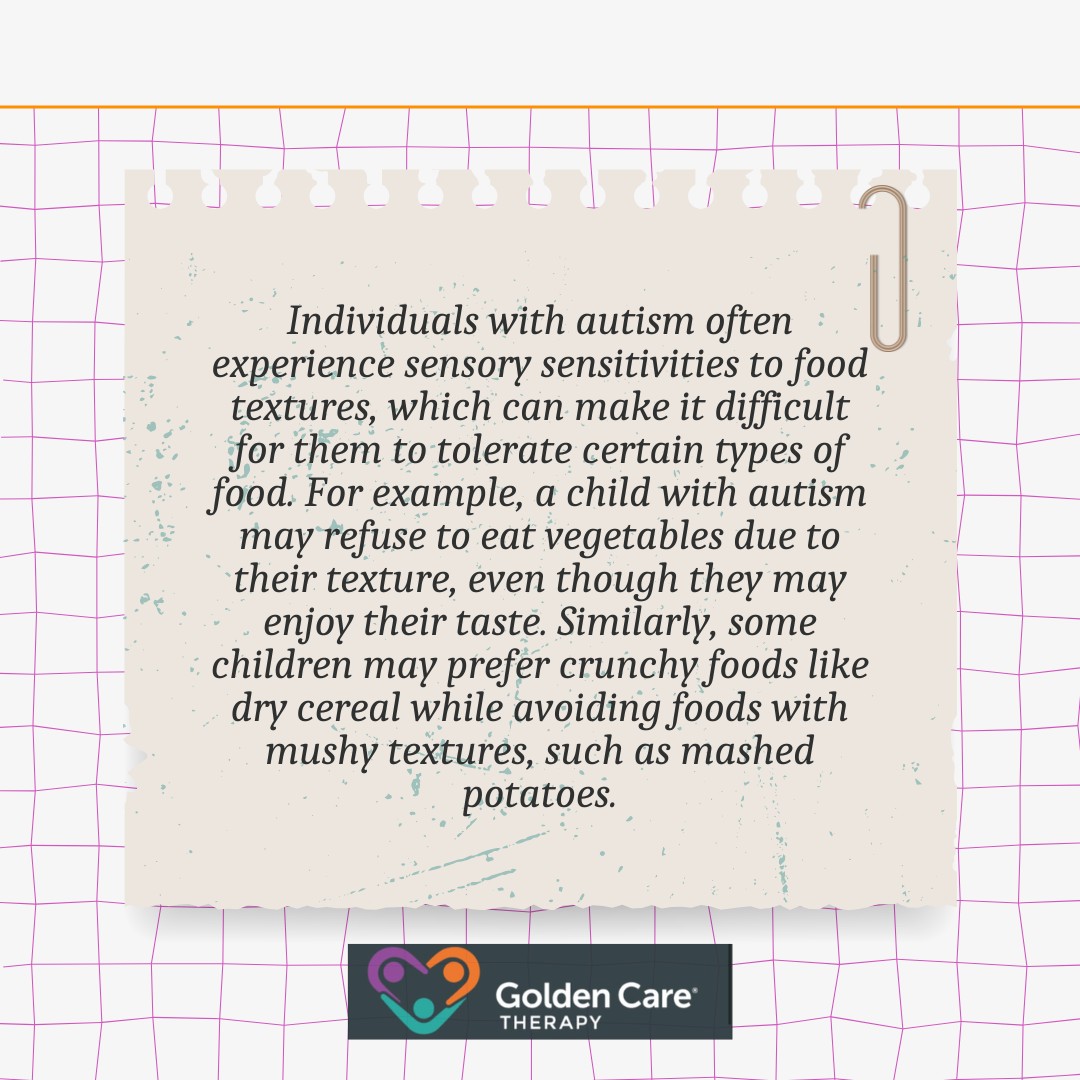Autism affects a wide range of behaviors and functions in individuals, including social interactions, communication skills, and repetitive behaviors. Another less frequently discussed aspect of autism is its impact on dietary habits and nutrition.
Many individuals with autism face unique challenges related to food preferences, sensitivities, and eating patterns, including overeating, which can significantly affect their overall health and development.
Here, we’re going to explore the connection between autism and dietary issues, as we offer insights into common eating habits, underlying causes, and practical approaches to managing nutrition.
4 Common Dietary Issues in Individuals with Autism
Individuals on the autism spectrum often exhibit a range of dietary preferences and issues that can complicate their nutritional intake. These issues may stem from sensory sensitivities, rigid routines, or difficulty communicating food preferences.
Below are some of the most common dietary issues observed in individuals with autism:
Picky Eating
One of the most common challenges faced by individuals with autism is picky eating. Children with autism may prefer a very limited range of foods, often sticking to certain textures, colors, or flavors. These food aversions can make meal planning difficult and can result in nutrient deficiencies.
The preference for specific foods may be linked to sensory sensitivities, as individuals with autism may have heightened or diminished taste, smell, or texture sensitivities.

Food Sensitivities and Allergies
Another dietary issue frequently observed in individuals with autism is food sensitivities or allergies.
Many children on the spectrum exhibit sensitivities to gluten, casein (found in dairy), or other common allergens. These sensitivities may contribute to gastrointestinal discomfort, which can exacerbate behavioral challenges.
While the scientific community is still exploring the exact relationship between food allergies and autism, some families report improvements in behavior and digestion by eliminating certain foods from their diet.
Gastrointestinal Issues
Gastrointestinal problems, such as constipation, diarrhea, and bloating, are common in individuals with autism.
Studies suggest that the gut microbiome plays an essential role in overall health, and disruptions in the gut can impact both physical and behavioral health. Some individuals with autism may have an altered gut microbiota, leading to digestive discomfort, which in turn may affect their appetite and food choices.
Hyperfocus on Food
In some cases, individuals with autism may exhibit a hyperfocus on food. This can manifest as an overwhelming preoccupation with specific foods or meals, making it difficult for individuals to transition to other activities. This obsession with food may lead to overeating, restricted eating, or difficulty following meal schedules, which can affect their overall nutrition and health.
The Impact of Sensory Sensitivities on Eating Habits
Many autistic individuals have sensory sensitivities that can significantly impact their eating behaviors. Sensory processing issues can make certain textures, smells, and tastes intolerable for individuals, leading to selective eating patterns.
For example, a child with autism may refuse to eat foods with certain textures, such as slimy or crunchy foods, while preferring foods with more predictable, neutral textures like plain pasta or crackers.

Along with texture sensitivity, individuals with autism may have heightened or diminished sensitivity to smells and tastes. A particular food’s smell might trigger aversions, making it challenging for the individual to try new foods.
Alternatively, some children may have a preference for highly flavored or sweet foods, while others may avoid foods with strong tastes, such as spicy or bitter flavors.
Dietary Interventions and Approaches for Managing Autism
While the dietary issues associated with autism can be challenging, several strategies and interventions can help improve nutritional intake and overall well-being. It’s important to approach dietary concerns holistically, addressing both the physiological and behavioral aspects of eating.
Providing a balanced diet is essential for all individuals, including those with autism. Ensuring that the individual consumes a variety of foods from all food groups can help meet their nutritional needs.
For children with autism, this might mean introducing a broader array of foods in small, manageable steps to avoid overwhelming them. It’s also important to address any nutrient deficiencies that may arise from selective eating patterns.
Some families report success in managing autism symptoms through dietary interventions, such as gluten-free and casein-free diets. These autism diets eliminate foods that contain gluten (found in wheat, barley, and rye) and casein (a protein found in dairy products).
While scientific evidence on the efficacy of these diets is still being explored, some individuals with autism show improvements in behavior, social skills, and digestion when gluten and casein are removed from their diets.
Managing Gastrointestinal Issues Through Diet
Gastrointestinal issues are prevalent among individuals with autism, and addressing these issues is often critical to improving their dietary intake and overall health. Below are some strategies that can help manage GI problems associated with autism.
Identify Food Triggers
Certain foods may exacerbate gastrointestinal issues in individuals with autism, leading to discomfort and further food aversions. Identifying food triggers through a process of elimination can help manage digestive issues.
Common triggers include high-fat foods, artificial additives, or foods that are difficult to digest. Keeping a food diary can be a helpful tool in identifying problematic foods.
Probiotics and Gut Health
Emerging research suggests that the gut microbiome plays a crucial role in both physical and behavioral health. Probiotics, which promote the growth of beneficial bacteria in the gut, may help alleviate some gastrointestinal symptoms.
Studies have shown that probiotics can reduce symptoms of constipation and improve overall gut health, which may improve eating behaviors and reduce irritability.
Ensure Adequate Hydration
Proper hydration is essential for maintaining good gastrointestinal function. Dehydration can lead to constipation, which is a common issue among individuals with autism. Ensuring that the individual drinks enough water throughout the day can help manage this issue.
Some individuals may prefer flavored water or smoothies, which can help make hydration more appealing.
Conclusion
Dietary issues are an important consideration when managing autism, as they can significantly impact an individual’s health, behavior, and overall quality of life. Sensory sensitivities, selective eating, gastrointestinal issues, and food preferences are common challenges that families and caregivers face when addressing the nutritional needs of individuals with autism.
However, these challenges can be managed effectively with the right strategies, such as structured mealtimes, balanced diets, supplementation, and dietary interventions.
At Golden Care Therapy, we provide high-quality ABA therapy in New York, New Jersey, Indiana, Georgia, and Florida to support families in overcoming these hurdles. Our team is dedicated to creating personalized care plans tailored to your child’s unique needs. Contact us today to learn how we can help your family thrive and schedule your consultation with our expert team.

